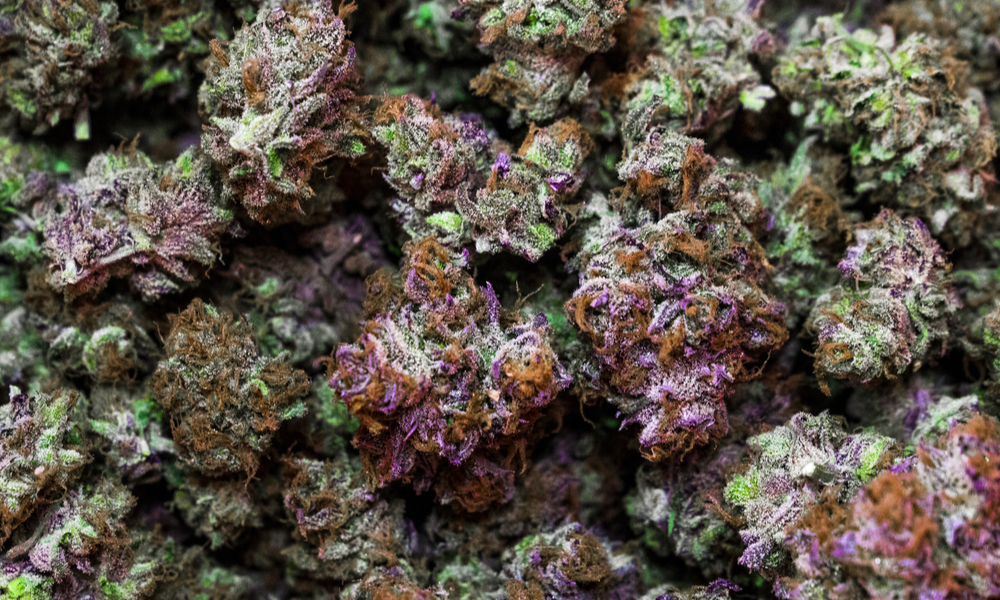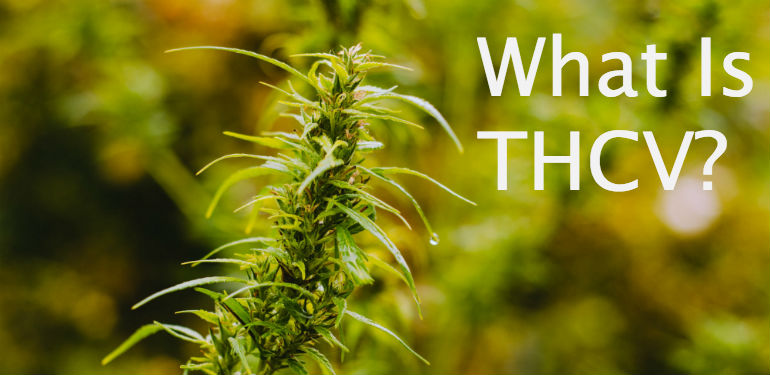Tetrahydrocannabivarin (THCV) is a cannabinoid substance found in marijuana and hemp plants. It's chemically comparable to tetrahydrocannabinol (THC) but with some essential differences. Here's everything you need to understand about THCV including the risks, benefits, differences, and resemblances with other forms of THC and more. What Is THCV? THCV is a less common cannabinoid discovered in some strains of marijuana, especially African sativa.
 THCV The Benefits of The Little-Known Cannabinoid
THCV The Benefits of The Little-Known Cannabinoid
 What is THCV? Understanding “Diet Weed” - Elevate Holistics
What is THCV? Understanding “Diet Weed” - Elevate Holistics
 THCV - The Cannabinoid of the Month at Champlain Valley Dispensary
THCV - The Cannabinoid of the Month at Champlain Valley Dispensary
THCV has a 3-carbon side chain rather than THC's 5-carbon side chain. This difference is subtle, but it has a visible influence on the impact profile. THCV is somewhat psychedelic however just about and about. What Does THCV Seem like? THCV has a strong energy-boosting part to it, that makes it especially popular amongst trainees and professional athletes.
In the United States, THCV regulation is nuanced. THCV is not a Schedule I Drug, but cannabis extracts are making it somewhat uncertain what the federal position is on THCV. The 2018 Farm Costs specifies that hemp plants and all derivatives of the plants are legal on a federal level, a lot of companies follow this law and still offer THCV to consumers by just extracting the compound from hemp plants.
If THCV is considered a THC analog, it could be managed in the future by the exact same guidelines as THC under the Federal Analog Act. This act specifies that any substance that shares a similar molecular profile as a known forbidden substance it's consisted of in the very same drug where to buy thcv sf Schedule category.
What Are the Results of THCV? Proponents of THCV report that it produces an extreme burst of energy and makes them feel blissful without the psychological cloudiness brought on by THC. The results are incredibly mild compared to THC. The effects are almost specifically cognitive yet somehow have very little influence on headspace.
2. THCV & Hunger Some THCV users declare that it curbs their appetite. This is a typical result of other focus-enhancing substances. It's as though THCV gets rid of the interruption of other physical procedures (like hunger) in order to protect resources and attention to cognitive jobs instead. How Does THCV Work? Cannabinoids produce biological results in the body by connecting with endocannabinoid receptors.
CB1 receptors are located in the nerve system and connect with neurotransmitters in the brain to produce mind-altering results. Interaction with CB1 sites is what provides some cannabinoids like THC their psychoactivity. THCV andrekdpf737.wpsuo.com/thcv-cresco-labs is a bit tricky to understand due to the fact that it's mainly a CB1 antagonist, meaning it has the opposite result as THC.
While scientists are still looking for to comprehend this procedure, it appears THCV is able to obstruct the effects of CB1 in low dosages and stimulate them in high dosages. CB2 receptors are discovered mostly in the immune system. THCV is a partial agonist of CB2, but the impacts of this partial activity aren't well-known, and it seemingly has no noticeable influence on THCV users' experience.
As mentioned in the previous section, THCV is a CB1 villain in low doses which is the exact opposite impact of delta 8 and delta 9 THC. This Additional resources might mean that THCV counteracts some of the psychedelic effects of THC. This effect could explain why people who utilize THCV feel so clear-headed especially compared to the infamous "fogginess" induced by delta 9 THC.